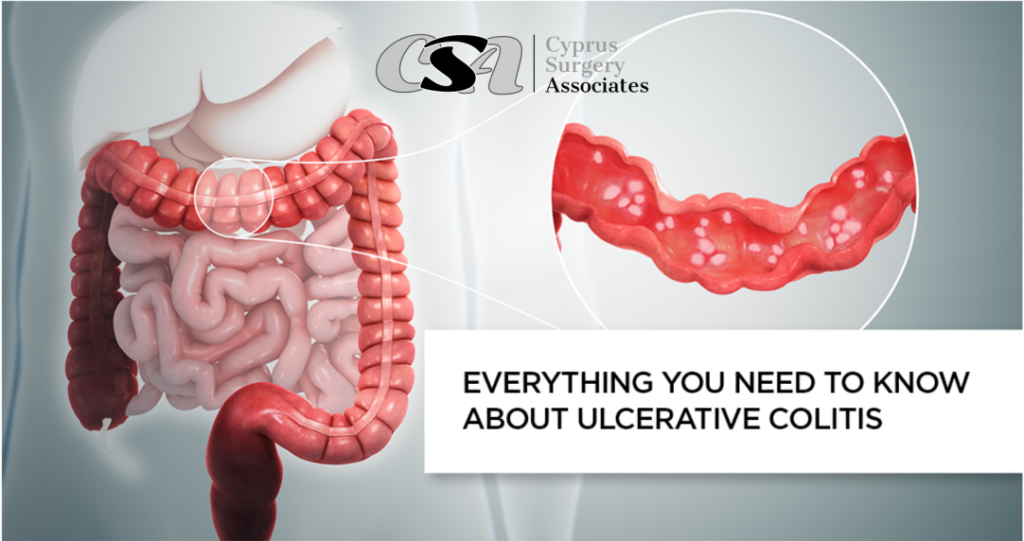 Ulcerative colitis is an immune disease that causes inflammation and ulcers on the inner surface, of the mucosa of the colon. Inflammation destroys cells of the mucosa resulting in bleeding, pus, and the formation of small sores (ulcers). At the same time, the inflammation causes more frequent emptying of the colon resulting in the appearance of diarrhea.
Ulcerative colitis is an immune disease that causes inflammation and ulcers on the inner surface, of the mucosa of the colon. Inflammation destroys cells of the mucosa resulting in bleeding, pus, and the formation of small sores (ulcers). At the same time, the inflammation causes more frequent emptying of the colon resulting in the appearance of diarrhea.
Ulcerative colitis can occur for the first time at any age. It usually starts between the ages of 15 and 30 and, more rarely, can start to be seen between the ages of 50 and 70.
Ulcerative colitis – Symptoms
The most common symptoms are abdominal pain and bloody diarrhea. Blood loss causes anemia and fatigue and is often accompanied by weight loss and anorexia. Ulcerative colitis can also cause problems in systems other than the digestive system, the so-called extra-intestinal manifestations of the disease, such as arthritis, eye inflammation, or liver disorders.
Ulcerative colitis – Diagnosis
The diagnosis is made mainly by colonoscopy. With a colonoscopy, the gastroenterologist can take small sections of the bowel (biopsies) and send them for histological examination to confirm the diagnosis.
Ulcerative colitis is a chronic condition that presents with flares and relapses. This means that it is a condition that comes and goes, that is, a patient may be completely well for a long time, but at some point show recurrence and symptoms of the disease. The only way to definitively treat it is to surgically remove the entire colon.
Ulcerative colitis creates a constant irritation of the intestine, so there is a risk of developing dysplasia (early-stage cancer), or cancer. About 5% of patients develop colon cancer. The risk of cancer increases with the duration of the disease and the size of the damaged colon. For example, when the whole colon is affected, the risk of cancer is 32 times higher than what people normally have.
Ulcerative colitis – Treatment
The treatment depends on the severity of the condition. The treatment of the disease must be done individually and always by a specialized gastroenterologist first. Several classes of drugs can be used. The goal of the drugs administered is to bring and keep the disease in remission.
Surgical treatment
Surgical treatment involves the removal of the colon. In approximately 25% to 40% of patients, the colon needs to be removed due to severe complications such as:
- bleeding with rupture of the colon
- rupture of the colon,
- risk of cancer
In some cases, removal of the colon is recommended by the doctor when preoperative treatment fails.





